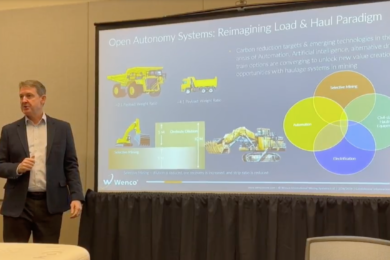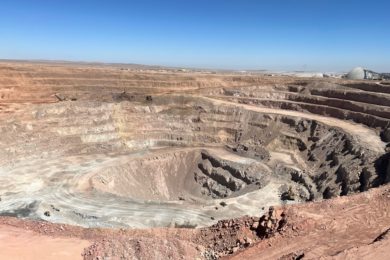Dr Gary Cavanough, Director, QMR Blasting Analysis explains that through a state-of-the-art research and testing laboratory located at Mining3’s Pinjarra Hills facility in Brisbane, Australia, QMR Blast provides a range of blasting products, services, and software to the global mining industry. The laboratory is licensed to manufacture explosive products and provides analysis of explosives, detonators, and detonations.
“QMR’s reactive ground and inhibited product testing is a great example of the lab’s service offering to the mining industry, no matter where in the world projects are located or their phase of activities—be it exploration, development or operation.”
Reactive ground describes ground in which the reaction between sulphide minerals and the ammonium nitrate contained in explosives may cause unpredictable and spontaneous detonations of blastholes at any time after loading. Reactive ground is a significant safety and financial risk to companies.
Through collaboration and extensive trials, QMR Blast has improved reactive ground testing methodology to prevent the potentially costly misinterpretation of results. The QMR methodology provides more accurate data and more comprehensive reporting than ‘traditional batch-type analysis’—thus providing a clearer understanding of reactive ground risks for companies and the professionals tasked with managing them.
“QMR Blast also supplies sensors to measure electromagnetic emissions, detonation pressure, ground pressure, and gas pressure induced by detonation.
“We are also currently developing next-generation primers that cannot be initiated by heat using nano-explosive particles.
“Our facilities are backed by high levels of expertise and academic and industry research that also provides training for engineering and/or science thesis students. Co-location with Mining3 enables collaborative research and shared capability.”










